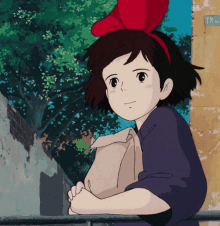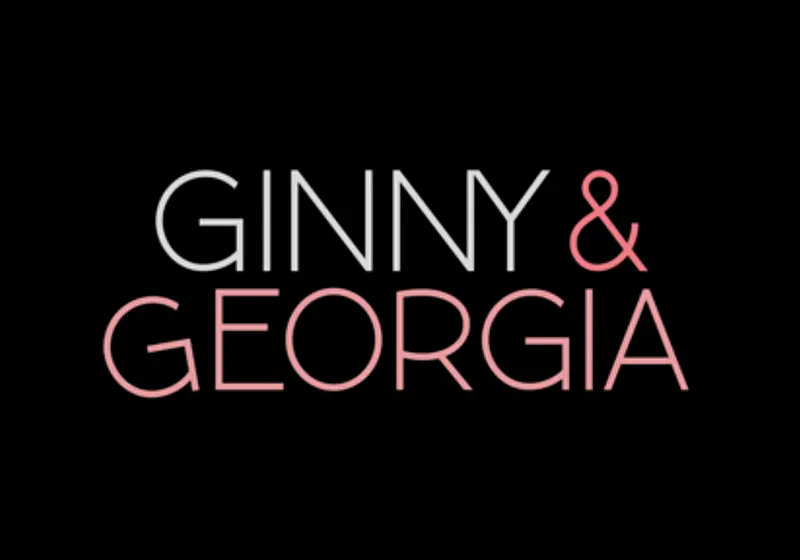Trigger Warning: Mentions of self-harm, suicide and eating disorders. Spoilers ahead!
Netflix rolled out season 2 of Ginny and Georgia on January 5th, 2023, and is receiving applause for the raw and accurate representation of teen mental health. It covers themes of depression, anxiety, self-harm and suicide, and shows what it’s like to suffer silently, unable to explain your feelings or reach out for support.
Seeing Marcus so depressed in Ginny and Georgia makes me so sad. Almost no one around him notices until he gets really bad, which is so relatable
— Nichole (@_____nichole) January 29, 2023
#GinnyAndGeorgia Season 2 This season improved so much over season 1, they really took the criticism seriously. Excellent character development and more depth, I really like the portrayal of mental health issues this time. It made me laugh, cry and gasp out loud pic.twitter.com/WsexAvmpCt
— Tinka (@TinyTinkerBell9) January 27, 2023
Many mental health issues have often been represented as violent and unpredictable actions in the media, blamed on hormones, and marked as "just a phase," a misleading and inaccurate way of showing how mental health is actually experienced. Certain experiences are also ridiculously exaggerated for the sake of the plot, and words like "crackhead" and "psycho" are thrown around casually.
Murder-mystery stories, in particular, tend to show the murderers suffering from some kind of mental illness, making them act the way they do because it seems easier to use mental health as an excuse for someone who has violent behavioural tendencies, so that the crime can be pinned on them.
Season 2 of Ginny and Georgia came in strong not only because of the plot and pace of the show but also because it gave a raw image of the main characters going through mental health problems. People took to Twitter to express approval of how mental health has been depicted in the show.
one of the most relatable depictions i’ve seen in media of what it’s like to live with depression,,, and it’s from ginny and georgia pic.twitter.com/BizsVNWQeo
— ♀️ (@fatfabfeminist) January 19, 2023
The only unrealistic aspect I found was the parents' understanding and support, as Marcus and Ginny tackled different issues. While there are a lot of wonderful parents that are supportive when it comes to their children’s mental well-being, I would have liked to see a more accurate presentation of what it’s like to try and explain these feelings to your parents because, in a lot of cases, that adds more pressure on teens not to deal with the fear of them not understanding what it’s like on top of everything else.
Regardless, Marcus and Ginny’s breakup and what happened after that were incredibly well represented. The breakup was not a result of any misunderstandings or with intentions of hurting each other. As Marcus phrased it, he did not "have space for anyone else’s demons." As much as he loved Ginny and wanted to be there for her, his mental health was declining.
He was back on meds for depression, was getting drunk, skipping classes, and gave no explanation regarding his actions or how he felt and believed that he did not deserve to be loved. Despite Ginny reassuring him, he decides to take a step back from the relationship and deal with his feelings.
I felt every [censored] emotion there is to feel during these scenes. Marcus was depressed, he felt that he didn’t deserve Ginny’s love or anyone’s love. I was in tears during these scenes. I feel Ginny’s pain #ginnyandgeorgia pic.twitter.com/4hxCWvnmNW
— Nia🧚♀️ (@ThickyDumplings) January 23, 2023
I also liked how there was no "hush-hush" and beating around the bush about it. The characters straight-up used the words depression and anxiety instead of avoiding the topic. This has generally not happened; even in real life, mental health is still so stigmatised that many people don’t openly talk about it.
When it comes to Ginny, she had been self-harming for quite some time and started going to therapy as recommended by her father when he found out about this. She had discovered many unsettling things about her mother’s past, and the way it was gnawing at her when she couldn’t openly talk about it was well enacted.
Her persona wasn’t represented at therapy as an "angsty teenager who refuses to talk." Despite initial apprehensions, she does end up opening up to her therapist and openly acknowledges and accepts help, as she repeatedly mentions that she’s not okay and wants to get better. A significant moment that represents this is when she feels like harming herself but calls her therapist and breaks down on the phone instead.
I appreciate what the writers of Ginny and Georgia are doing trying to de-stigmatize self harm. I feel like as a society we are becoming more open about mental health struggles but self harm is something that seems to still looked at as “weird” or “scary” and kept hidden.
— LZA 🫠 (@lainthecut_) January 30, 2023
My favourite scene in this context was Marcus’s monologue, where he talks about spiralling and how he had been through this before. He could feel it coming back, and while he had managed it last time, he didn’t know if he could again. He didn’t have the energy to get out of bed, let alone maintain a relationship with Ginny. He felt like loving and being loved took effort, and he didn’t have it in him to do that.
Season 2 of #GinnyandGeorgia is dark, raw, emotionally heavy. Incredible performances by Toni Gentry and Brianne Howey. Loved the honest conversations about mental health, therapy, family etc.
Felix Mallard's work in episode 8 was so powerful. Gimme a S3 please.
— Amanda (@xojonasboysxo) January 23, 2023
There’s a lot of criticism around Ginny not seeing what Marcus was dealing with, but there are also people who ran to her defense, as we can see she’s going through a crisis of her own. At one point, before Marcus and Ginny get together, she also acknowledges that they are both broken and that it might not make sense for them to be in a relationship.
She had a panic attack at Zion’s house, had been self-harming for quite some time, and her friend group was falling apart. While I personally am not a fan of how Ginny behaves in certain situations and believe she should have seen what Marcus was going through, I can also understand how what she was going through may not have allowed her to do that.
Ginny is a little self involved that she didn’t notice that Marcus is depressed?? #ginnyandgeorgia #GinnyandGeorgiaS2
— 🧡Nellie🧡 (@Nellie_Ville) January 28, 2023
unpopular opinion: Ginny is not THAT bad, she’s struggling with her mental health, doesn’t know how to deal with the situation either what’s going on. Doesn’t justify, but no one would be nice and kind in her position. #ginnyandgeorgia
— laura💫 (@laurarodrig__) January 22, 2023
While the show revolves around Ginny and Marcus in terms of mental health, we see glimpses of Abby, who is possibly struggling with an eating disorder and body dysmorphia. She’s seen taping her legs and struggling as her parents are fighting and getting a divorce with no one by her side. MANG had broken up because Max discovered that Ginny and Marcus had been sleeping together. Viewers are hoping that the next season will look into Abby’s story more, and many have expressed discontent if the show uses Abby’s character just to help Press turn over a new leaf.
Wait, Press knows about Abby taping her legs but still calls her whale legs when they start making out in the bathroom? We all know Abby is just hooking up with Press to numb the pain Hope Season 3 is more focused on her story #GinnyAndGeorgia
— Olivia (@_alwayseating) January 29, 2023
The show has done an incredible job on mental health experiences such as anxiety, depression, panic attacks, destigmatizing therapy, and self-harm. At one point, we also saw therapy recommended for Austin, a pre-teen. While Georgia refuses to go through with this, she may change her mind in the next season, especially after Austin shoots Gil, now that she sees what therapy for Ginny is like.
People are looking forward to exploring Abby’s story, how Marcus tackles depression, Ginny getting better, and glimpses into other characters in season three.
This show is doing the most for mental health and showing how real it is instead of forced scenes for “entertainment”. S3 I wanna see Marcus kick depressions [censored], Abby get help for her anorexia, & someone acknowledge Max clearly has ADHD #ginnyandgeorgia
— 𝐊𝐀𝐓𝐄 🌺 (@KatieMcElhoney) January 7, 2023
Overall, I think this show has something for everyone in terms of understanding mental health. Parents and guardians can watch this and understand how they can better support teens when it comes to mental health. Teens can find relatability in Marcus and Ginny's situations.
Those whose friends are struggling with mental health can see how they can also be more supportive. Season 2 is a major step towards a more accurate portrayal of mental health issues as well as a normalization of what it's really like. It has the potential to open up several conversations that were initially considered taboo, such as self-harm, depression, anxiety and the importance of therapy.
Most importantly, it also tells us that it's okay to not be okay and that reaching out for help does not make anyone weak. Taking initiative to make ourselves work for ourselves is just as important as the effort people around us put into helping us. I'm really looking forward to Season 3 and hope it keeps up the realistic mental health narrative through the storyline, even though the main point that will most likely be addressed is Georgia's arrest.
I'd love to see how members of MANG get better at learning from and supporting each other with focus on their individual experiences and Marcus getting the help he needs. I'd also like to see a glimpse into Austin getting some form of therapy, which would be a step toward opening conversations addressing mental health across ages. No one is "too young" or "too old" to get the help they need. More than anything, the representation in this show makes me feel heard as a teenager.











